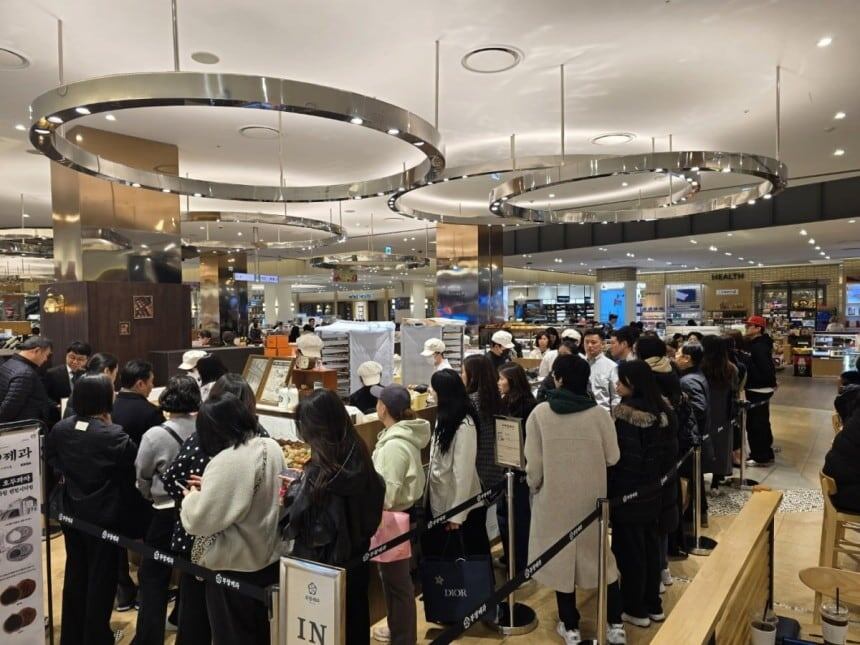Korean-style desserts are finding growing popularity among young consumers overseas, especially Millenials and Gen Z, fueled by the global Korean Wave and viral content on platforms like YouTube. In response, both traditional dessert makers and newer brands such as Yoajung, known for its yogurt ice cream, are actively expanding into international markets.
Korea is emerging as the center for Asia's latest dessert fads.
– Nikkei (Japan)
On April 7th, Japan’s Nikkei newspaper highlighted "The Contest for the Top One Hundred Sweet Delights of Korea" in an article detailing several prominent Korean dessert businesses. Featured among these is Boochang Jegwa, a walnut cake label relaunched by actor Lee Jang-woo. This brand draws inspiration from the traditional Gyeongju pastry known as hodu-gwaja but adds contemporary variations like a distinctive Bolivian sea salt taste, attracting numerous fans who often form lengthy queues.

Currently, Boochang Jegwa has outlets in Shinsegae Department Stores located in Gangnam, Daegu, Centum City, and Starfield Suwon. An additional location will be opening next month in Daejeon. In the future, the brand aims to expand into prominent Japanese department stores and partner with an established Japanese lifestyle firm. Looking further ahead, they plan to penetrate markets such as the United States and Vietnam.
SPC Samlip is pushing its traditional yakgwa snack in the U.S. market. After initially selling through Asian supermarkets, the brand successfully entered Costco last December. The first batch quickly sold out, and restocking is now underway. Hanwha Investment & Securities expects SPC’s yakgwa exports to the U.S. to increase by over 30% this year compared to 2024.
Industry experts say the growing popularity of Korean desserts comes from their blend of tradition and modern trends. Traditional treats like tteok, yakgwa, and bingsu are being reinvented with creative twists, making them more appealing to a wider audience. The global rise of Korean pop culture, from music and dramas to films, has also boosted interest in Korean food.

Social media has fueled the K-dessert boom, with one popular trend being "ggultteok cereal," where milk is poured over colorful rice cakes. This unusual combination went viral on YouTube and TikTok, sparking curiosity and excitement worldwide, much like the Dubai chocolate craze in Korea." This rising interest has boosted exports of rice-based desserts, with tteok made from rice flour seeing a 20% jump last year, especially in the U.S. and Europe.
Yoajung, a popular yogurt ice cream brand from South Korea that gained significant attention last year, is now expanding internationally. The company inaugurated its initial international outlet at Ala Moana Center, which is Hawaii's biggest shopping mall. Following this, Yoajung has expanded into markets such as Australia, Hong Kong, and mainland China. Notably, a master franchise agreement was established for operations within China with the aim of speeding up its market penetration.
The growth of Korean desserts began organically as K-pop and K-dramas became globally popular," stated Professor Moon Jung-hoon from Seoul National University, who specializes in agricultural economics. "However, we're still in the initial phase; the gateway to new possibilities has only just started to open.